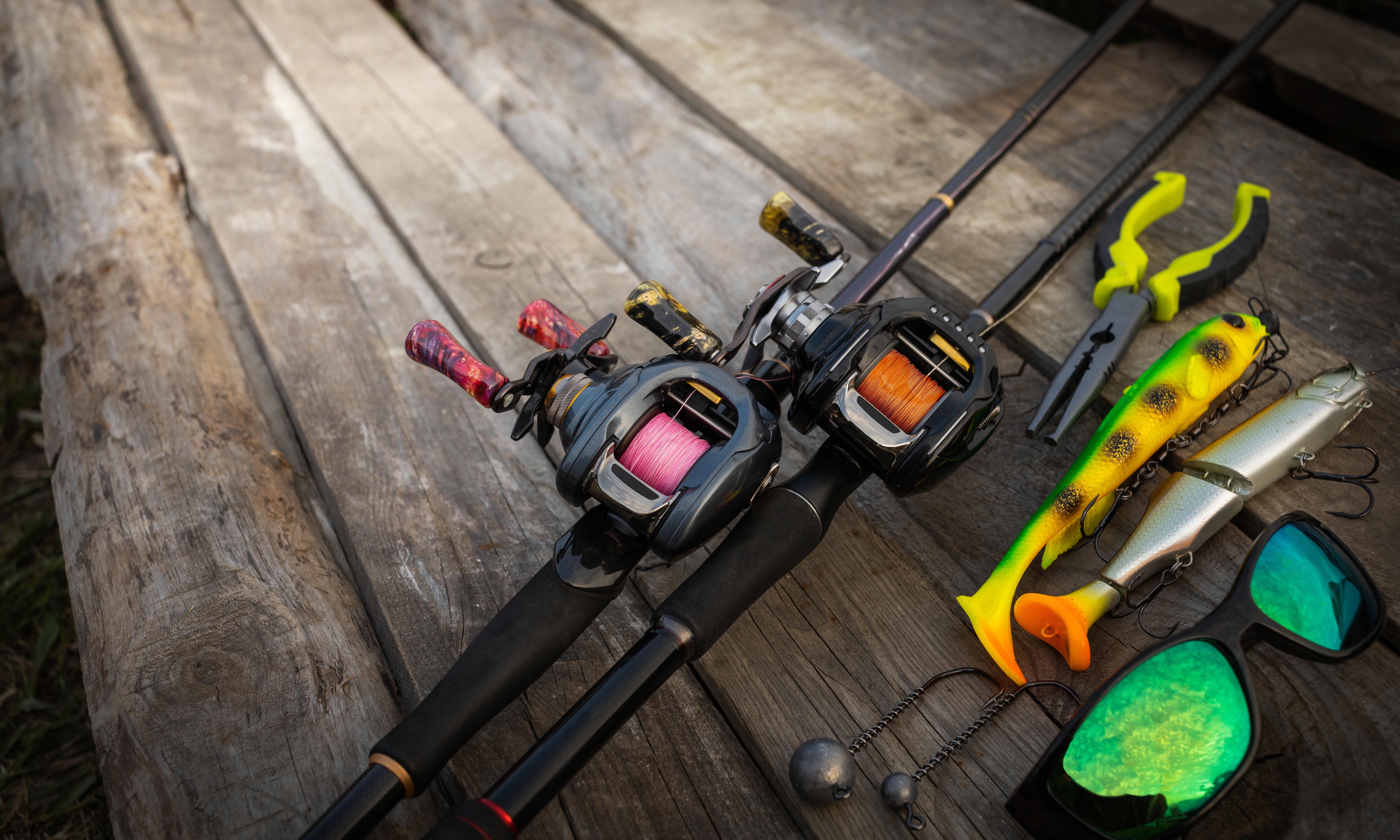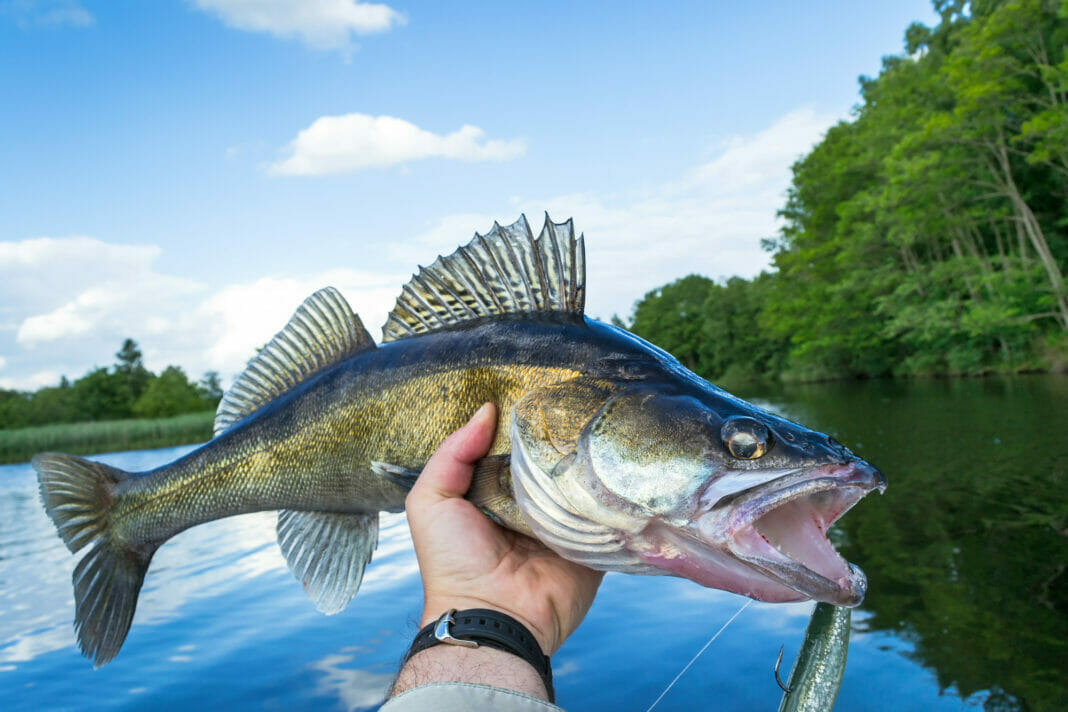Fishing is an incredibly rewarding and enjoyable experience, especially when done in freshwater. Not only does freshwater fishing provide many opportunities to enjoy the outdoors, but it also allows you to create memories with friends and family.
This beginner’s guide provides comprehensive tips and tricks for a successful freshwater fishing trip. You’ll find out what freshwater fishing is, its benefits, the necessary equipment and gear needed for different fishing activities, and license and permit information based on the area you’ll be fishing.
Not only that, but we’ll also cover the identification of different types of freshwater fish found in these waters, location tips for finding the right spots to fish at, safety regulations that need to be adhered to, along with conservation efforts that should also be taken into account. With this helpful advice in hand, your next trip could become your best ever!
What is Freshwater Fishing?
Freshwater fishing is the recreational or commercial activity of catching fish in a natural body of water, such as rivers, lakes, and streams. Freshwater fishing can be done using various methods, depending on the type of species targeted and angler preference. These range from traditional rods and reels to fly-fishing to bow fishing with bows and arrows. The most common freshwater game fish include trout, bass, crappie, bluegill, catfish and pike.
Each type of freshwater fish requires different types of tackle for successful capture, so anglers must be well-versed in their chosen technique before setting out on their trip. It’s also essential to understand the regulations put in place by local authorities which may include restrictions on size limits or catch limits for certain species or even closed seasons at specified times during the year. Finally, it is important to consider conservation efforts when going freshwater fishing. This could involve practicing catch-and-release techniques where possible as well as adhering to local pollution laws designed to protect these fragile ecosystems.
What Are the Benefits of Freshwater Fishing?
Freshwater fishing is an enjoyable activity that offers several benefits. One of the primary advantages is that it can be enjoyed by people of all ages and skill levels, making it an ideal family pastime for those looking to spend quality time together outdoors. It also provides excellent opportunities for physical exercise, allowing anglers to stay active while enjoying nature’s bounty.
In addition, freshwater fishing can provide a sense of accomplishment as anglers strive to catch their desired species—or even bigger fish than usual. The thrill derived from this activity cannot be underestimated; not only does it help reduce stress but its calming effects make it an ideal form of recreation in today’s hectic world.
Finally, freshwater fishing helps build relationships between individuals who share the same passion for this rewarding hobby. Friends and family members can come together each summer for friendly competitions or just spend some quality bonding time out on the water.

What Are the Essential Gear and Equipment Needed for Freshwater Fishing?
The essential gear and equipment required for freshwater fishing vary, depending on the type of species you’re targeting. Generally speaking, an angler needs a rod, reel, line, lures or bait and hooks to begin their excursion.
A basic rod should be light yet durable with a comfortable grip handle; spinning reels tend to be more beginner friendly than casting ones.
For lines, a monofilament is an affordable option that works well for most applications, while braided lines offer more sensitivity when used in combination with lighter lures or baits.
Lures come in many shapes and sizes as do hooks which can vary from single-hooked models to treble hook varieties; it’s important to choose the right one based on the size of fish being targeted along with local regulations regarding the use of certain types of tackle.
Other items such as pliers and forceps used for removing hooks from fish may also need to be taken along if you’re planning a longer session out on the water. Other accessories, such as waders or rod holders, could also make your trip much easier if needed. Finally, don’t forget the sunscreen!
How to Select the Right Type of Gear for Different Types of Freshwater Fishing
Selecting the right type of gear for freshwater fishing can be a daunting task, especially for novice anglers. To ensure success on the water, it’s important to understand what kind of species you will be targeting. That way, you can choose the tackle and equipment best suited to the job at hand. For example, when targeting smaller fish such as bluegill or crappie, then lighter lines and rods should be used in combination with small hooks and lures to give yourself the best chance of success. Alternatively, if you’re going after larger gamefish like bass or pike, then heavier tackle may be needed. Braided lines and stout rods will be helpful to make sure these powerful predators don’t escape during battle!
In addition to selecting appropriate gear based on the species targeted, it is also important to consider other factors such as local regulations regarding size limits or closed seasons. These could affect your selection process, as some waters may have specific rules against certain types of bait or tackle being used. On the other hand, others might require catch-and-release practices due to conservation efforts.
Furthermore, personal preference plays an important role in choosing what gear works best for each angler. Whether they prefer spinning reels over casting ones or monofilament lines over braided lines makes all the difference when out on the water!
How to Get Necessary Licenses and Permits for Freshwater Fishing in Your Area
To legally fish in freshwater areas, anglers must first obtain the necessary licenses and permits. Depending on where you live, these can be purchased from your local Department of Natural Resources or Fish & Wildlife office or online from the corresponding state website. Generally speaking, an individual fishing license is required for anyone aged 16 years old and above. However, younger people may need a junior license depending on their age and residence status.
In addition to a regular license, some states also require additional permits such as those for trout fishing, which are typically valid for one year at a time. Certain bodies of water may also have special restrictions requiring additional paperwork before they can be accessed – this information should always be checked before setting out on any fishing trip!
Another important step when acquiring licenses and permits is understanding all regulations related to the area being fished and checking if any special requirements apply based on species targeted or methods used (e. g., bait use). Regulations will vary by state so it’s important to read through them carefully to stay compliant with local laws. Failure to do so could result in hefty fines or even jail time in extreme cases!
It is also wise for anglers to keep up-to-date with changes made by state agencies regarding freshwater fishing rules as these often change without warning due to conservation efforts or other reasons. By educating themselves about current regulations, anglers can rest assured that they are staying within legal boundaries while enjoying their favorite pastime out on the water!
What Are the Different Types of Freshwater Fish?
Freshwater fish are some of the most diverse and interesting creatures found in aquatic habitats. There are over 8, 000 species of freshwater fish from all over the world, ranging from small minnows to large catfish. These species can be divided into several different categories based on their behavior, characteristics, and habitat preferences.
For instance, many gamefish such as bass and trout inhabit shallow lakes with plenty of vegetation for cover, while carp thrive in still waters like ponds or swamps. In addition to these popular species, there are also a variety of less common ones such as gar that inhabit slow-moving streams or rivers and even deep-dwelling predators like sturgeon which live near the bottom of large bodies of water. All these types have adapted differently over time, allowing them to survive in various environments throughout their lifetime!
The type of freshwater fish commonly sought after by anglers is dependent upon a variety of factors including location, seasonality, and personal preference. However, certain species tend to be more popular than others due to their size or availability. Popular sportfish include largemouth bass, pike, and walleye. Those looking for dinner might prefer panfish, such as bluegill or crappie, which can easily be caught using smaller tackle setups. Meanwhile, anglers targeting trophy catches may pursue rarer specimens, such as muskellunge or lake sturgeon, which often require larger rods combined with heavier lines when going after them!
Regardless of what type an angler chooses though, they must adhere closely to local regulations regarding catch limits so that these unique creatures remain abundant in our waterways for years to come!
How to Find the Right Fishing Spot
Finding the right fishing spot can be a daunting task for even experienced anglers. The key to success is research and preparation; having a good understanding of local fisheries, regulations and water conditions will help make this process much easier. To begin with, it’s important to know what type of fish you’re targeting as well as when they are most active in that particular body of water. These details can usually be found online or from local resources, like bait shops or tackle stores.
Additionally, looking at maps and satellite images of potential locations can give valuable insight into terrain features such as depth contours, structure (e. g., points and ledges), and likely hiding spots for fish. Accessing reliable reports from other anglers who have recently fished in the same area is also helpful, since they may offer advice on which lures or techniques worked best for them during their trip!
Once an ideal location has been identified then it’s time to consider more practical matters such as transportation, necessary gear/equipment and safety precautions that should be taken while out on the water. This includes wearing a life vest at all times—regardless of swimming ability—plus packing basic first aid supplies, just in case something goes wrong! With any luck though, these steps will ensure that there’s plenty of fun ahead once the lines start hitting the surface.
Freshwater Fishing Safety and Conservation
Freshwater fishing is an enjoyable activity that can be enjoyed by anglers of all ages and abilities. It is important, however, to understand the safety risks associated with this type of sport and take the necessary precautions to ensure a smooth experience.
Before heading out onto a lake or river, it’s essential to check local weather conditions as well as any relevant regulations. This includes obtaining proper licensing if required by law. When on the water, it’s important to wear life jackets at all times—regardless of swimming ability. Additionally, having basic first aid supplies, such as bandages and antiseptic wipes, can help should an injury occur while out on the boat.
In addition to practicing safety measures, freshwater fishermen should also consider environmental conservation when participating in their favorite pastimes. This means disposing properly of any trash or bait containers left behind after each trip, avoiding practices that may damage natural habitats (e. g., using lead sinkers), and adhering closely to catch limits so that these unique creatures remain abundant in our waterways for years to come. By being mindful of both personal safety and conservation efforts, then everyone can enjoy freshwater fishing without putting themselves or nature at risk.
Conclusion
In conclusion, freshwater fishing can be an enjoyable and exciting experience for anglers of all skill levels. With the right gear and knowledge through proper research, anyone can have a successful day on the water. Always take into account the local regulations and safety measures to ensure good fishing experiences are had by all. Skillful preparation and following best practices for conservation ensure that this activity will stay alive and thrive for generations to come.


